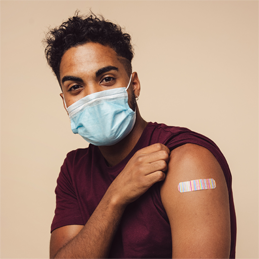What you need to know about the latest mpox outbreak

As at August 2024, there have been several new locally-acquired cases of mpox reported in Victoria as well as other Australian locations.
It’s now time to become familiar with mpox, how it is transmitted, how to limit infection and how to treat a diagnosis.
Mpox is mainly spread from close contact between people, which, in a lot of cases, means it’s passed on during sex. Gay, bi and other men who have sex with men are considered to be at increased risk of exposure and transmission.
Free vaccinations are now available
Free vaccination is available to people at increased risk. Two doses of the vaccine are required for protection against severe illness. Anyone who has received one vaccine only should get a second dose within 28 days after the first. It’s important to know that vaccine takes approximately 14 days before it is effective.
Learn more about where to receive a free vaccination at thorneharbour.org/sexual-health/mpox or via the MPX page on the Victorian Department of Health website.
So what do people with HIV need to know about this latest outbreak?
While the number of new cases in this outbreak is small, it is concerning because contact tracing efforts have not found any links between these cases or links to overseas travel. This lack of connection suggests that there could be cases of mpox circulating in the community.
It has been two years since the first cases of mpox in Australia were discovered. Since then we have learned more about how it’s transmitted, the symptoms associated with mpox, and what we need to do to prevent mpox.
Over the last two years a number of studies have shown that people with HIV are at higher risk of more severe mpox infection. It’s important to be careful when reading these studies because many of the people included in the research lived in countries with lower access to mpox vaccination and HIV treatments than we have here in Australia.
While it’s still possible for some people to get mpox after being fully vaccinated, the cases that have been seen have had very mild symptoms, with lesions being described as similar to small pimples. It’s important to remember that mpox infection starts with flu-like symptoms before any lesions happen.
While there isn’t any clear evidence that people with HIV in Australia are at higher risk of complications than HIV negative people, we do know that a lower immune response to the mpox vaccination has been seen in people with HIV.